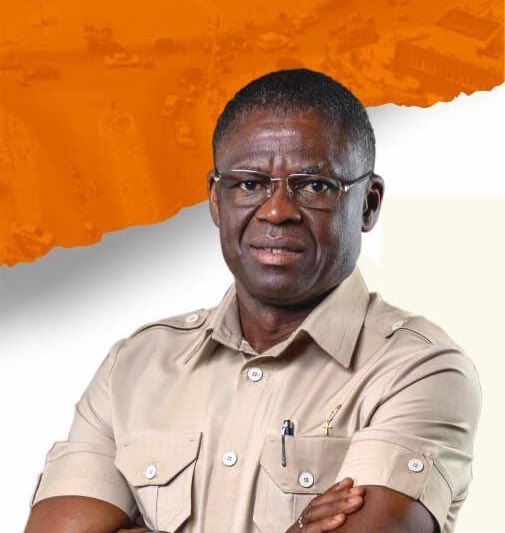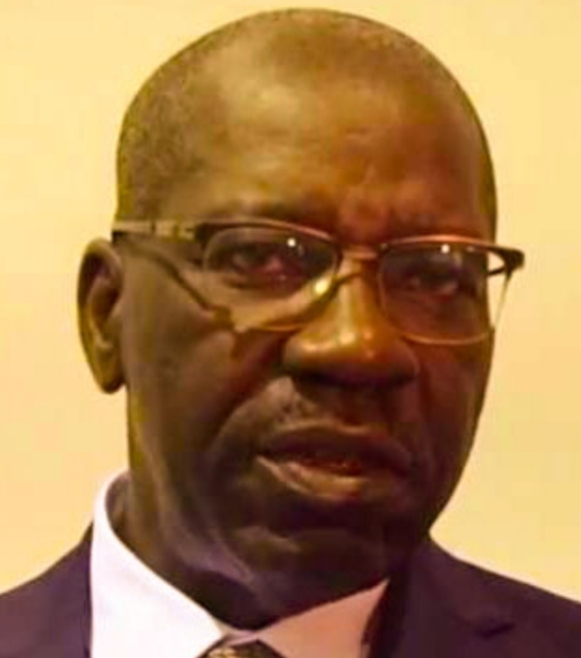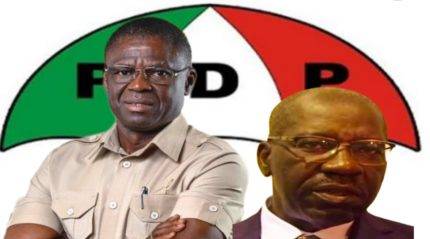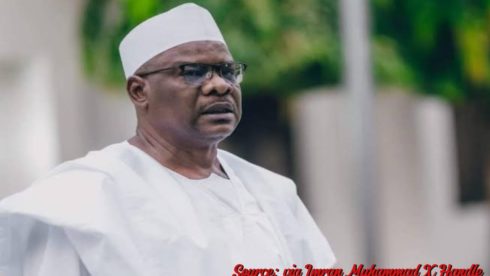In a surprising turn of events, Edo State’s Deputy Governor, Philip Shaibu, has openly expressed his deep sense of betrayal by his principal, Governor Godwin Obaseki. The rift has emerged over the upcoming 2024 governorship election, where Shaibu expected Obaseki’s support for his candidacy. This revelation sheds light on the internal dynamics of the political landscape in Edo State, showcasing a rift within the ruling party.
Shaibu, who initially embraced the role of deputy governor at the urging of Obaseki, claims to have significantly contributed to the success of the Obaseki administration. His contributions extend to both political structuring and financial support. This unexpected discord raises questions about the cohesion within the ruling party and sets the stage for a potential shake-up in Edo State’s political landscape.
Philip Shaibu Highlights Contributions to Obaseki’s Government
During a candid interview on Arise TV, Deputy Governor Philip Shaibu elaborated on the value he added to Governor Obaseki’s government. Shaibu emphasized his pivotal role in shaping the political structure of the administration, indicating that his efforts played a crucial role in the success achieved by Obaseki’s government. Furthermore, Shaibu pointed out his significant financial contributions, underlining the multifaceted support he provided to the governor.
This revelation prompts a closer examination of the intricate relationships within the political landscape of Edo State. Shaibu’s assertions not only expose the internal dynamics of the ruling party but also raise concerns about the transparency of decision-making processes within the government. As the rift between the governor and his deputy becomes public, it sets the stage for potential repercussions that could reverberate through the political corridors of Edo State.

Obaseki’s Alleged Support for an Outsider
One of the core issues fueling the tension between Deputy Governor Shaibu and Governor Obaseki is the latter’s purported support for an outsider in the upcoming 2024 governorship election. This revelation adds a layer of complexity to the already strained relationship between the two political figures. Obaseki’s decision to back a candidate other than his deputy raises questions about the loyalty and internal cohesion within the ruling party.
As the political landscape in Edo State becomes increasingly convoluted, the consequences of Obaseki’s choice may have far-reaching implications. The support for an external candidate challenges the traditional expectations of loyalty within political alliances, potentially reshaping the alliances and power dynamics in the state. This development not only intensifies the political drama but also sets the stage for a closely watched and highly contested gubernatorial election.
Philip Shaibu’s Emotional Response to Obaseki’s Support Choice
Deputy Governor Philip Shaibu did not mince words during his interview on Arise TV, expressing his emotional hurt over Governor Obaseki’s decision to endorse an outsider instead of supporting his candidacy. This emotional response adds a human dimension to the political dispute, resonating with the public on a personal level. Shaibu’s candid revelation of feeling betrayed creates a narrative that goes beyond mere political maneuvering, tapping into the emotions of the electorate.
As the news of Shaibu’s emotional response circulates, it becomes a focal point for public discourse. The personal dynamics between the governor and his deputy are now laid bare for scrutiny, influencing public opinion and potentially swaying sentiments as the political landscape continues to evolve. This emotional aspect introduces an unpredictable element into the unfolding political drama, capturing the attention of both local and national audiences.

Political Fallout and Party Dynamics in Edo State
The fallout between Deputy Governor Philip Shaibu and Governor Godwin Obaseki threatens to disrupt the established party dynamics in Edo State. The public revelation of internal strife within the ruling party creates a ripple effect, impacting the perceptions of both party members and the electorate. The unfolding drama has the potential to lead to shifts in allegiances, alliances, and party loyalties, reshaping the political landscape in the run-up to the 2024 governorship election.
As political players within Edo State assess the ramifications of this rift, the party’s unity hangs in the balance. The internal conflicts may spur strategic realignments and recalibrations, influencing the dynamics of political power within the state. The fallout becomes a critical point of discussion among political analysts and observers, with implications that reach far beyond the personal grievances of the deputy governor and the governor.
Anticipation and Uncertainty Surrounding the 2024 Governorship Election
The ongoing discord between Deputy Governor Philip Shaibu and Governor Godwin Obaseki injects a significant element of anticipation and uncertainty into the approaching 2024 governorship election in Edo State. With key players at odds within the ruling party, the electorate is left in suspense about potential shifts in political alliances and the emergence of new contenders. This heightened uncertainty sets the stage for a closely watched election, where voters are likely to scrutinize candidates and party dynamics more than ever before.
As the political landscape continues to evolve, the drama between Shaibu and Obaseki becomes a focal point for political discussions and speculations. The electorate awaits further developments, eager to see how the internal conflicts within the ruling party will shape the competitive landscape of the upcoming election. This heightened anticipation underscores the significance of the unfolding political narrative, making the 2024 governorship election in Edo State one of the most closely monitored and discussed events in the region.
Table of Contents
Discover more from OGM News NG
Subscribe to get the latest posts sent to your email.













